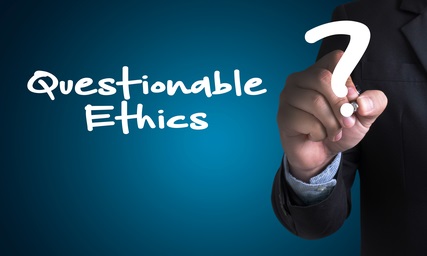Financial salespersons have a bad name. They prey on the vulnerable and  operate on the fringes of integrity. The horror stories are legendary. The recent examples of forcing consumers off tracker mortgages only add to the miserable reputation. But not all salespeople are culpable – ethical influencers do exist!!
operate on the fringes of integrity. The horror stories are legendary. The recent examples of forcing consumers off tracker mortgages only add to the miserable reputation. But not all salespeople are culpable – ethical influencers do exist!!
When two people sit down to talk it is rare that neither is influenced by the other. When a consumer engages with a salesperson it is almost always the case that the consumer knows less about the product and is, therefore, open to persuasion. Where a positive consumer outcome is achieved the influence brought to bear by the salesperson is laudable – otherwise the legend lives on.
There are a number of steps consumers can take to ensure that they have the wherewithal to resist unethical techniques whenever they arise. Never make hasty and emotional decisions. Go away and ask yourself, “Did you learn enough to make a balanced and informed assessment?” “Were you told about the risks as well as the benefits?” “Did the sales process enhance your trust in the salesperson’s honesty?”
Trust comes from reliability and truth. It is an absolutely proven fact that consumers will do more business with those that they trust. It is, therefore, crucial for salespeople to build, retain and renew that trust. The following are the types of behaviours that do not generate trust, in the first instance, and damage existing trust:-
- not giving straightforward answers to awkward questions;
- highlighting the positives with zealous enthusiasm;
- not explaining the negatives with equal fervour;
- changing opinions and arguments;
- leaving the impression with the consumer that you’re up to no good;
- not doing what you say you’re going to do;
- just not being empathetic enough;
- not explaining how much you’re making from the sale
Trustworthy and successful salespeople will always ponder the following:-
- Would I buy the product if I was the consumer?
- Am I holding back any information?
- What detail have I glossed over?
- Will the consumer be as happy as me with the sale?
- Is the consumer willingly buying the product?
- Have I lied about anything?
It is far easier than we may realise for others to distrust us. Traits, habits and body language can be immediate turn-offs before we even begin to speak. And, of course, trust is a two-way discipline. A successful salesperson will always walk away from an untrustworthy client.
The ethics of influence are not solely academic – there is a real practical dimension. It is very unfortunate that ethical influencers who achieve their sales targets and, at the same time, maintain satisfied clients are daubed with the same slurs as those who behave unethically. MMPI recognises that distasteful examples of poor sales behaviours emanating elsewhere in the financial services’ industry do have an influence on consumer attitudes. While regrettable, it simply strengthens our resolve to maintain our own high standards and to preserve our reputation for decent, honest persuasion. Ethical influencers – the new term for honest salespeople!

